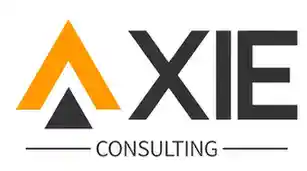
Huawei's AI Hardware Breakthrough: A Game-Changer in the Chip Race
The AI hardware landscape is heating up, and Huawei just dropped a bombshell. The Chinese tech giant has unveiled its CloudMatrix 384 Supernode, a computing system that reportedly outperforms Nvidia's best offerings. This isn't just another product launch - it's a potential turning point in the global AI chip race that could reshape the industry's power dynamics.
Breaking Down the CloudMatrix 384 Supernode
Let's talk numbers because they tell an impressive story. Huawei's new system delivers a staggering 300 petaflops of computing power, significantly outpacing Nvidia's NVL72 system at 180 petaflops. But raw power isn't everything - this hardware was specifically designed to tackle the computing bottlenecks that have been plaguing AI development as models grow increasingly complex.
The 384 Supernode isn't just powerful; it's fast. Reports indicate it can process 1,920 tokens per second while maintaining high accuracy levels. What makes this particularly noteworthy is that it achieves performance comparable to Nvidia's H100 chips, but does so using entirely Chinese-made components.
How Huawei Achieved This Breakthrough Despite Sanctions
Here's where things get really interesting. Huawei accomplished this feat while operating under severe US sanctions that limited access to advanced semiconductor technology and design software. The company's ability to develop competitive AI hardware despite these restrictions is nothing short of remarkable.
The Secret Sauce: Huawei's Answer to NVLink
The key to the CloudMatrix 384's performance appears to be Huawei's proprietary alternative to Nvidia's NVLink technology. NVLink allows multiple GPUs to communicate efficiently, and Nvidia's NVL72 system uses a 72-GPU NVLink domain that functions like a single, super-powerful GPU.
Huawei has developed its own high-speed interconnect technology that enables similar performance characteristics. The company is collaborating with Chinese AI infrastructure startup SiliconFlow to implement this system in supporting DeepSeek-R1, a reasoning model developed by Hangzhou-based DeepSeek.
Why This Matters for the Global AI Industry
Nvidia has enjoyed near-total dominance in the AI accelerator hardware market for years. Huawei's breakthrough could change that dynamic, offering developers a viable alternative and potentially easing the current computing bottlenecks that limit AI advancement.
China's Broader Push for AI Independence
Huawei's achievement isn't happening in isolation. It's part of a concerted effort by Chinese tech companies to build domestic AI infrastructure. Earlier this year, Alibaba announced a massive $52.4 billion investment in computing resources and AI infrastructure - the largest-ever by a private Chinese company in a computing project.
This trend suggests China is serious about developing alternatives to American technology in this strategically crucial field. The implications extend beyond just hardware - it's about technological sovereignty in an era of increasing geopolitical tensions.
Performance Claims: Too Good to Be True?
While the reported specifications are impressive, it's important to note that Huawei hasn't yet responded to requests for comment on these claims. Independent verification will be crucial to assess whether the CloudMatrix 384 Supernode truly matches or exceeds Nvidia's offerings in real-world applications.
The Road Ahead for AI Hardware Competition
If Huawei's performance claims hold up, we could be looking at a significant shift in the AI hardware market. More competition could lead to better products, lower prices, and increased innovation - all good news for AI developers and researchers.
However, Nvidia isn't standing still. The company continues to innovate, and its established ecosystem of software and developer tools gives it significant advantages. The battle for AI hardware supremacy is just getting started.
What This Means for AI Development Globally
The emergence of viable alternatives to Nvidia's hardware could have far-reaching consequences for AI development worldwide. More options mean more computing capacity available for training and deploying models, potentially accelerating progress across the field.
Potential Impacts on AI Research and Applications
With more powerful and accessible hardware options, researchers might be able to tackle problems that were previously computationally infeasible. This could lead to breakthroughs in areas like natural language processing, computer vision, and scientific computing.
For businesses implementing AI solutions, increased competition could mean lower costs and more choices when selecting hardware for their AI workloads.
The Geopolitical Context of Huawei's Breakthrough
Huawei's achievement takes on added significance given the ongoing tech tensions between the US and China. The company's ability to develop competitive AI hardware despite sanctions demonstrates China's progress toward technological self-sufficiency.
Implications for the Global Tech Landscape
This development suggests we may be moving toward a more fragmented tech ecosystem, with different regions developing their own technology stacks. While this promotes independence, it could also lead to compatibility challenges and reduced interoperability between systems from different regions.
Looking Ahead: The Future of AI Hardware
Huawei's breakthrough is likely just the beginning of increased competition in the AI hardware space. Other companies, both in China and elsewhere, will be motivated to develop their own alternatives to Nvidia's dominant position.
What to Watch For in Coming Months
Key developments to monitor include independent performance benchmarks of Huawei's new system, Nvidia's response to this challenge, and whether other companies enter the fray with their own competitive offerings. The AI hardware market, long dominated by a single player, may be on the verge of becoming much more interesting.
One thing is certain: the race for AI hardware supremacy just got a lot more competitive, and that's ultimately good news for everyone working in artificial intelligence.
